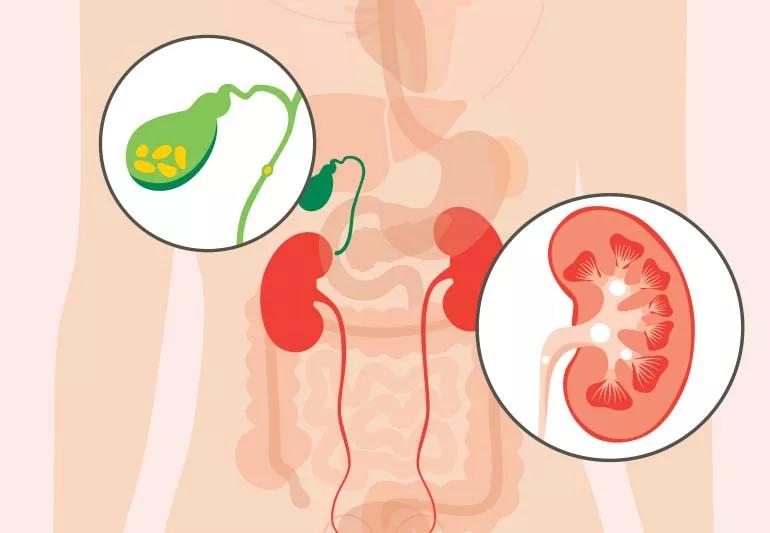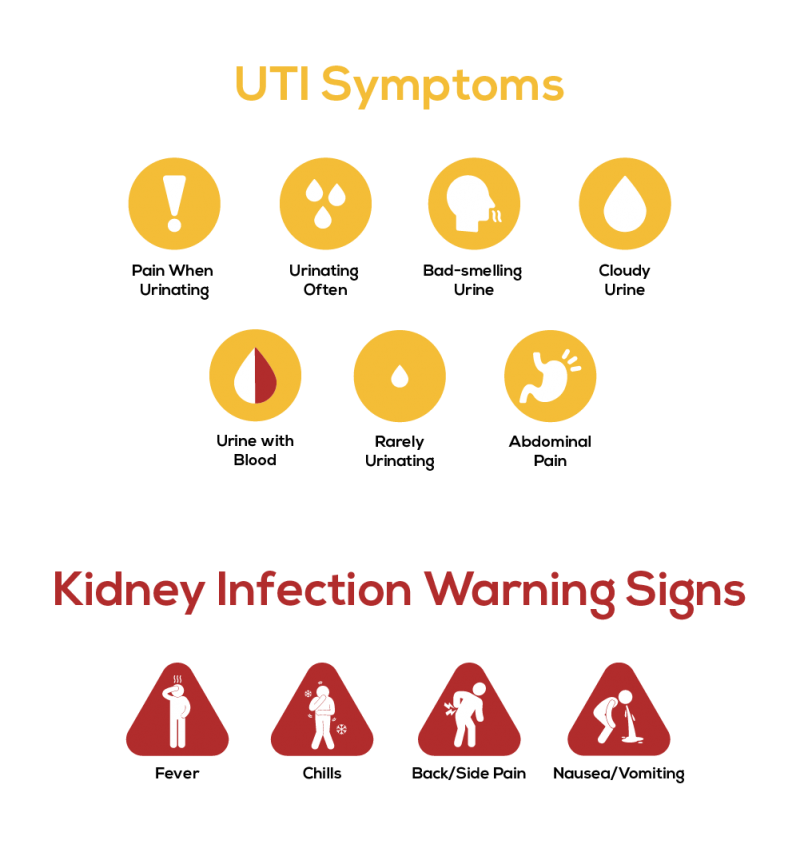Kidney Stones vs UTI: Necessary Information on Treatment Alternatives and Prevention
Wiki Article
Checking Out the Effects and Causes of Kidney Stones in Comparison to Urinary System Infections: A Thorough Overview
The exploration of kidney stones and urinary system infections (UTIs) discloses a complicated interplay of symptoms and underlying causes that warrant careful examination. What are the key distinctions in their signs, and just how might these educate therapy methods?Introduction of Kidney Stones
Kidney stones, additionally called renal calculi, type when certain substances in the urine crystallize and aggregate, leading to the development of difficult deposits within the kidneys. These stones can vary in size, varying from a grain of sand to a golf ball, and can be made up of numerous products, one of the most typical being calcium oxalate, uric acid, struvite, and cystine. The development of kidney stones is affected by numerous factors, consisting of dietary practices, liquid intake, and genetic proneness.Signs of kidney stones may include serious pain in the back or side, blood in the urine, nausea, and regular peeing, particularly as the rock relocates via the urinary system tract. Medical diagnosis generally entails imaging researches such as ultrasound or CT scans, together with urinalysis to identify the stone's structure.
Therapy alternatives differ based on the dimension and kind of stone, in addition to the severity of signs and symptoms (Kidney Stones vs UTI). Little rocks might pass naturally with enhanced fluid consumption, while bigger stones might require medical interventions such as lithotripsy or medical removal. Comprehending the pathophysiology and danger factors connected with kidney rocks is important for reliable avoidance and monitoring
Review of Urinary System Tract Infections
Urinary system infections (UTIs) prevail microbial infections that affect any kind of part of the urinary system, consisting of the kidneys, ureters, bladder, and urethra. They mostly happen when germs, frequently from the stomach system, enter the urinary system, bring about swelling and infection. UTIs are classified into two primary kinds: complicated and straightforward. Uncomplicated UTIs normally happen in healthy and balanced people with normal urinary system tracts, while challenging UTIs may occur in people with underlying conditions, such as structural abnormalities or endangered body immune systems.The prevalence of UTIs is significantly greater in women than males, largely because of anatomical distinctions, such as a much shorter urethra. Risk factors consist of sexual activity, particular contraceptive approaches, urinary system retention, and dehydration. The diagnosis of UTIs is usually validated with urine tests, which may expose the existence of bacteria, white blood cells, or red cell.

Signs And Symptoms of Kidney Stones
The pain related to kidney rocks can manifest in numerous ways, often leading people to seek medical attention. One of the most common symptoms is severe pain, normally local in the lower back or side, which may radiate to the abdomen or groin. This pain, often explained as sharp or cramping, can take place unexpectedly and might vary in strength.Additionally, individuals might experience hematuria, or blood in the urine, which can vary from microscopic total up to visible staining. This symptom might be come with by modifications in urinary habits, such as raised regularity or urgency, as well as pain throughout peeing. Nausea and vomiting are also widespread, commonly resulting from the body's reaction to extreme pain.
Sometimes, people may experience fever and chills, specifically if a secondary infection develops due to the blockage triggered by the stones. On the whole, the combination of serious discomfort, hematuria, altered urinary system patterns, and intestinal signs can provide significant insight right into the presence of kidney rocks, calling for timely medical examination and treatment. Understanding these symptoms is important for timely medical diagnosis and effective monitoring of the problem.
Symptoms of Urinary System Tract Infections
Infections within the urinary system often offer a variety of distinct symptoms that can significantly influence every day life. The most usual symptoms consist of a persistent impulse to urinate, often come with by a burning feeling throughout peeing, known as dysuria. Individuals may additionally experience increased frequency of urination, producing tiny amounts of urine each time.Other significant signs consist of reeky or over cast urine, which may indicate the existence of bacteria or pus. Sometimes, urine might show up pink or red due to the visibility of blood, a problem referred to as hematuria. Additionally, people may experience pelvic discomfort or pressure, which can better aggravate the sensation of urgency.
Systemic signs and symptoms might also show up, such as high temperature, chills, and fatigue, especially if the infection has actually risen to the kidneys. It is important to recognize these signs and symptoms early, as neglected urinary tract infections can cause extra serious difficulties. Kidney Stones vs UTI. Motivate check here medical interest is recommended when these signs and symptoms are observed, permitting for appropriate analysis analysis and treatment to alleviate discomfort and prevent additional health problems
Causes of Each Problem
Frequently, kidney rocks and urinary system tract infections arise from unique yet occasionally overlapping causes that can impact individuals in different ways. Dehydration, inadequate liquid consumption, and high-sodium diet plans can exacerbate these conditions, promoting condensation within the urinary tract.
Recognizing these distinctive reasons is crucial for prevention and therapy. Kidney Stones vs UTI. While way of life modifications might alleviate the risk of kidney rocks, ideal health and timely therapy of urinary tract infections are important for reducing their reappearance and associated difficulties
Verdict
In recap, kidney rocks and urinary system infections present distinctive visit here signs and symptoms from this source and underlying causes. Kidney rocks are identified by extreme discomfort and metabolic factors, while urinary system tract infections mainly entail bacterial infections leading to urinary urgency and pain. Although both problems can result in hematuria, their development mechanisms differ considerably. Recognizing these differences is crucial for reliable medical diagnosis and treatment, inevitably improving patient end results for those influenced by either condition.The exploration of kidney rocks and urinary system tract infections (UTIs) reveals a complicated interplay of signs and symptoms and underlying causes that require careful evaluation.Urinary system system infections (UTIs) are common bacterial infections that affect any kind of part of the urinary system, including the kidneys, ureters, bladder, and urethra.Regularly, kidney stones and urinary system infections develop from unique yet often overlapping causes that can impact individuals in a different way.In recap, kidney rocks and urinary system infections existing distinctive signs and underlying reasons. Kidney stones are defined by severe pain and metabolic factors, while urinary system system infections largely entail bacterial infections leading to urinary necessity and pain.
Report this wiki page